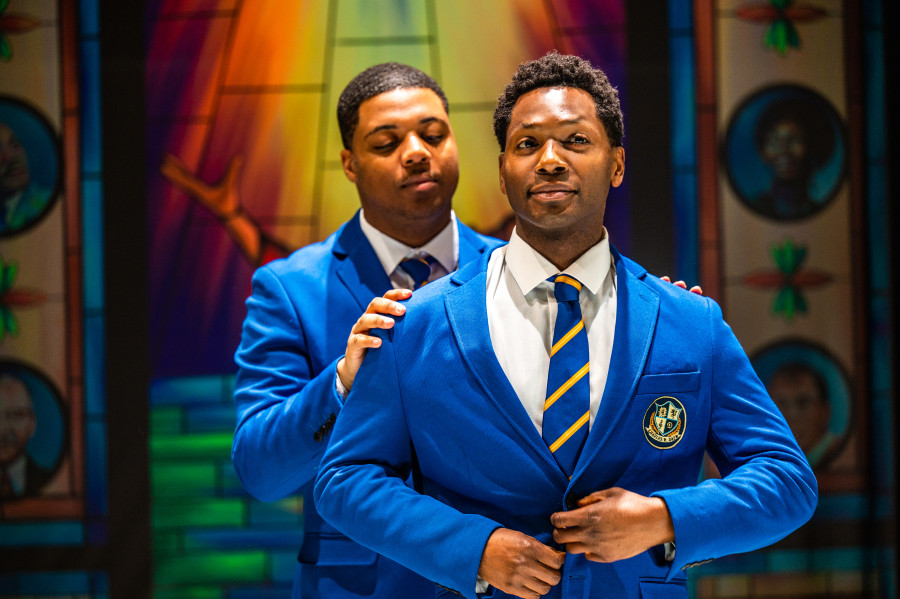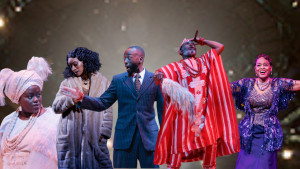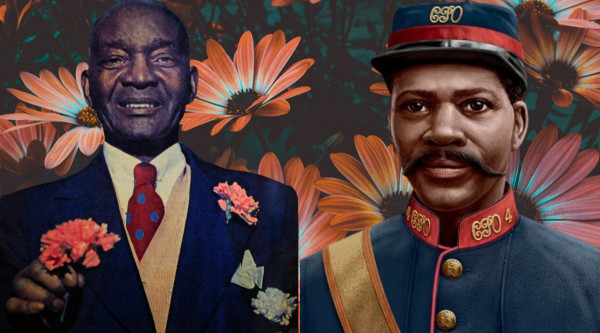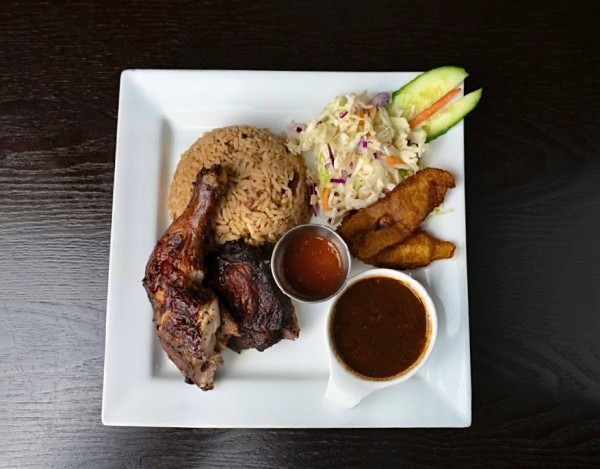The play in question is the lauded Choir Boy by Academy Award-winning Moonlight writer Tarell Alvin McCraney. It’s a dynamic story about identity, redemption, and conforming, brought to life by rapturous gospel hymns.
According to critics, it’s a must-see. This is the second time Payette gets to be at the helm of the play. Its first iteration was at Montreal’s Centaur Theatre for its 50th season and the play’s 2018 Canadian premiere, where it was critically acclaimed. Fast forward to 2022, and Payette is again amidst rehearsals to revive Choir Boy with Canadian Stage but from a fresh new perspective, in a new city, new position and artistic headspace.
Now residing in Toronto for the past year, Montreal-born and raised Payette is acclimating to Toronto life and theatre. His love and passion for the stage emerged behind the doors of Somerled elementary school in N.D.G. It was a Robert Munsch play that led Payette on the trailblazing course he’s on today. A man who has become a well-respected purveyor of extraordinary theatrical pieces to the masses that dig deep and push boundaries.
“There was this troupe that came, and I was about 7 or 8, but I remember the cast was pretty diverse at a time when we weren’t even talking about that. I was a pretty shy, thick kid, and my mom was working hard—it was all that home stuff, so I was pretty isolated. When I went through that experience, I still remember the ability to be transported to a different world and feel like I could escape into that story. At that point, I hadn’t had access to drama workshops or those things in the cards for me. But then my school started offering them. Then I noticed my voice was starting to come out a little more, my attitude started to come out a little bit more, and my personality was completely different from my home life. I recognized that theatre and the arts were opening the possibility of what I could be, and this notion that theatre and the arts actually do save lives,” says Payette.
As you can imagine, both of us, being from Montreal, had reminisced and parlayed about our younger days in school. We remembered how afterschool activities were free and an escape into the worlds of sports, and drama was available every year. But that outlet has ceased to exist, and now, even if it is available, not everyone can take that path because of economic status. “Access to the arts. It can’t always be art for art's sake. There has to be that connection to social impact and knowing that these young people are here—we’re trying to build critical thinkers and future leaders in the community. It’s not always about being an actor in the arts, but it’s about the fundamental link between how the arts and culture can transform an individual to find their place within this world.”
{https://www.facebook.com/cdnstage/videos/choir-boy-in-creation-with-mike-payette-nov-8-19/418470143785136/}
Payette provides an exceptionally esteemed background in Canada’s arts and theatre scene. Montreal to Toronto is a huge shift, both culturally and linguistically. However, he sees it as an experience that will facilitate his leadership. “As complicated as Quebéc socio-politics are right now, from a cultural perspective, it’s really, really rich. Culture is very much ingrained in the Quebécois francophone aspect of it. But I worked in English predominantly, even though I’m bilingual. But culture is infused into the ecology of what Quebéc is,” says Payette.
He continues, “With that comes embracing various art forms and disciplines that make up theatrical experiences. Sometimes dense literature, expressionistic art, or experimental art, but it’s always about contributing to the evolution of the artistic form. And that’s something I’m very grateful to have grown up in, even if it’s something I may have taken for granted. But one of the things I’m excited about within this transition is bringing that artistic scope and range in how stories can be shared outside of a traditional or tech-based model.”
“Knowing the body is also a form of language. There’s musical poetry, spoken word, the notion of song—all of that within the ecology of theatre still makes it theatre. Quebéc has that foundation. With Tarragon being a new creative hub in Canada, it’s a perfect opportunity to bridge that possibility of embracing the various kinds of storytellers that exist and how their stories are shared,” says Payette.
The artist within him doesn’t like to be comfortable either. Always in a state of challenging himself and exploring new possibilities, this transition felt like a natural progression for Payette. And the freshness of it all was alluring. He couldn’t pass it up and is fully enjoying Toronto and his involvement with Tarragon thus far. With all of the newness came the chance to work on the new production of Choir Boy again.
As mentioned, it’s rare to have a completely new production of a piece. Usually, it’s presented as a revival or a touring show. While Payette was ready and willing to press forward, he also had to recalibrate and figure out what his perspective and reasoning were now for taking on the project again. “Truthfully, the world has shifted in the past four years since the Canadian premiere. Even though this play is set in the 2012-2013 Obama, pre-Trump time, we know that in our Black communities, there’s been a lot lost and there’s been a lot mourned over. So this sort of anachronistic aspect of it forces us to look at this story within today’s context, even though it’s set during that time,” says Payette.
And his reasons for saying yes? “Well, I said yes because it’s a beautiful play. It’s deeply moving, tragic, heartwarming and funny, and an enchanting piece of theatre. So just that alone, but also, it was to challenge me. I don’t want to repeat anything because it’s different voices and different people. So by virtue of who’s in the room, it naturally shifts the production even before you do any work. But also it’s trusting that I could honour the audience here in Toronto and the understanding that Choir Boy should be a work that’s done everywhere.”
As a Canadian Black man, there are many things he doesn’t take lightly. Using his creative platform to disseminate compelling Black works about identity, inclusion, and equity to the diaspora is one of them. “It’s about representation. It’s about the acclamation of our voice and presence. And it’s not always based on trauma; it can’t always be based on a particular narrative. So we have to celebrate our positionality. We have to honour the uniqueness of our experience,” says Payette.
“Truth be told, it’s a fairly new concept within the theatre ecology that that conversation is happening. I come from a generation where there’s not much presence of that work in Canada on our main stages. It’s not to say that work isn’t happening because we know there are soldiers on the ground, and in the grassroots, you get to have Obsidian Theatres and the Black Theatre Workshops. But, again, not to say that the work isn’t being done, it’s just not to the scale and recognition it absolutely deserves.”
“It relates back to you when you asked about access. Why can’t we see our stories? Why do all stories have to be universal? I don’t necessarily think they do. We talk about the ‘Black’ play. Well, when we discuss Shakespeare, we don’t say the white play. We just call it a play. So it’s also something about the normalization of our presence and knowing that we contribute to the evolution of theatre practice here in Canada by virtue of the diaspora.”
Payette is a decorated actor and director who shows how the arts can transform someone’s life. His resume speaks for itself. As we’re already aware, tapping into one’s creativity early can lead to unearthing a well of wonders. Payette’s legacy can’t be compartmentalized to what’s on paper. He’s so much more. I asked him what he would like his artistic impact to be. He exhaled and paused while digesting the question. I watched as he briefly milled in his thoughts as he smiled and replied, “I harken back to what theatre can do. It can transform. I firmly believe that it saves lives, right? Because I’m an example of that. So this notion of legacy is very important to me,” he says.
“It guides the practice of giving back. It guides the practice of mentorship. That’s very important. I could look at my younger self and tell myself that I would not only be okay, but I would be a vessel for other folks like myself to find their power and voice. So that’s what’s driving what I do. And I hope when I’m gone that the impact of so many folks whose shoulders I stand on, for that young person who says, ‘I don’t know where I’m at, who I am or where I’m going,’ that they know there’s a home for them. The home may be a physical one, like a theatre, but the home is built inwardly to find that peace. And that’s what I want to promote. I want to promote that level of ownership of oneself and one’s voice through this work.”

 By
By 








